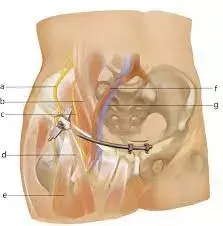- Home
- Medical news & Guidelines
- Anesthesiology
- Cardiology and CTVS
- Critical Care
- Dentistry
- Dermatology
- Diabetes and Endocrinology
- ENT
- Gastroenterology
- Medicine
- Nephrology
- Neurology
- Obstretics-Gynaecology
- Oncology
- Ophthalmology
- Orthopaedics
- Pediatrics-Neonatology
- Psychiatry
- Pulmonology
- Radiology
- Surgery
- Urology
- Laboratory Medicine
- Diet
- Nursing
- Paramedical
- Physiotherapy
- Health news
- Fact Check
- Bone Health Fact Check
- Brain Health Fact Check
- Cancer Related Fact Check
- Child Care Fact Check
- Dental and oral health fact check
- Diabetes and metabolic health fact check
- Diet and Nutrition Fact Check
- Eye and ENT Care Fact Check
- Fitness fact check
- Gut health fact check
- Heart health fact check
- Kidney health fact check
- Medical education fact check
- Men's health fact check
- Respiratory fact check
- Skin and hair care fact check
- Vaccine and Immunization fact check
- Women's health fact check
- AYUSH
- State News
- Andaman and Nicobar Islands
- Andhra Pradesh
- Arunachal Pradesh
- Assam
- Bihar
- Chandigarh
- Chattisgarh
- Dadra and Nagar Haveli
- Daman and Diu
- Delhi
- Goa
- Gujarat
- Haryana
- Himachal Pradesh
- Jammu & Kashmir
- Jharkhand
- Karnataka
- Kerala
- Ladakh
- Lakshadweep
- Madhya Pradesh
- Maharashtra
- Manipur
- Meghalaya
- Mizoram
- Nagaland
- Odisha
- Puducherry
- Punjab
- Rajasthan
- Sikkim
- Tamil Nadu
- Telangana
- Tripura
- Uttar Pradesh
- Uttrakhand
- West Bengal
- Medical Education
- Industry
Modified INFIX combined with sacroiliac joint screws safe and effective for pelvic instable injuries

C-INFIX safe with low complication rates among patients with pelvic unstable injuries suggests a new study published in the BMC Surgery.
The INFIX technique is becoming one of the most commonly performed surgical procedures for anterior pelvic ring instability injuries. The purpose of this article is to compare the clinical outcomes of modified anterior subcutaneous internal fixation (M-INFIX) with conventional anterior subcutaneous internal fixation (C-INFIX) for anterior pelvic ring instability injuries.
A retrospective analysis of 36 cases of unstable pelvic injuries treated operatively at our institution, 20 of which were treated with C-INFIX and 16 with M-INFIX. Data collected included age, gender, ISS score, fracture typing, operative time, operative bleeding, postoperative complications, fracture healing time, Matta score, Majeed score, and follow-up time. Statistical sub-folding of each variable between the two groups was performed.
Results
There was no statistical difference between the C-INFIX and M-INFIX groups in terms of age, gender, ISS (Injury Severity Score), follow-up time, fracture typing, fracture healing time, and Majeed score (P > 0.05). the M-INFIX had a significantly lower incidence of postoperative complications than the C-INFIX group, especially in the incidence of Lateral femoral cutaneous nerve (LFCN) injury (P < 0.05). In contrast, the M-INFIX group had statistically higher operative time, intraoperative bleeding, and Matta score than the C-INFIX group (P < 0.05).
This study was based on a modified application of the surgical experience with C-INFIX and showed better clinical outcomes in terms of complication rates and quality of repositioning than the conventional surgical approach. These findings indicate that further analytical studies of this study would be valuable.
Reference:
Zhao, P., Li, R., Liu, L. et al. Clinical study of modified INFIX combined with sacroiliac joint screws for pelvic instable injuries. BMC Surg 23, 350 (2023). https://doi.org/10.1186/s12893-023-02205-1
Keywords:
C-INFIX, safe, low, complication, rates, among, patients, pelvic, instable, injuries,BMC Surgery, Zhao, P., Li, R., Liu, L.
Dr. Shravani Dali has completed her BDS from Pravara institute of medical sciences, loni. Following which she extensively worked in the healthcare sector for 2+ years. She has been actively involved in writing blogs in field of health and wellness. Currently she is pursuing her Masters of public health-health administration from Tata institute of social sciences. She can be contacted at editorial@medicaldialogues.in.
Dr Kamal Kant Kohli-MBBS, DTCD- a chest specialist with more than 30 years of practice and a flair for writing clinical articles, Dr Kamal Kant Kohli joined Medical Dialogues as a Chief Editor of Medical News. Besides writing articles, as an editor, he proofreads and verifies all the medical content published on Medical Dialogues including those coming from journals, studies,medical conferences,guidelines etc. Email: drkohli@medicaldialogues.in. Contact no. 011-43720751


